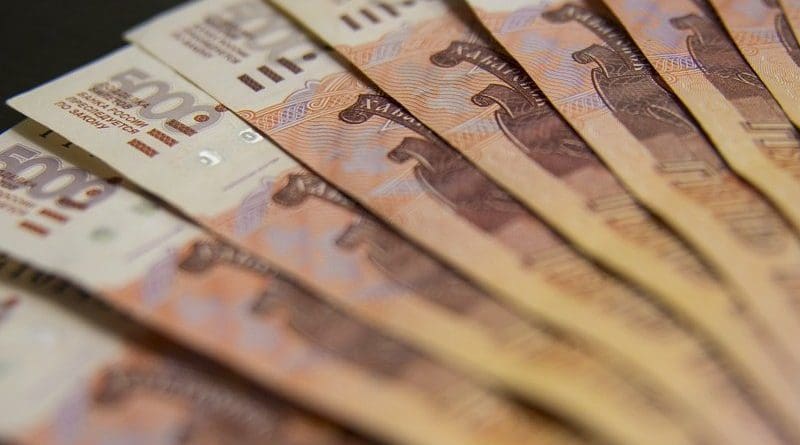EU To Discuss Compromise Text On Windfall Profits From Immobilized Russian Assets
By EurActiv
By Alexandra Brzozowski
(EurActiv) — EU member states are converging on a compromise text to use windfall profits from immobilised Russian assets to help Ukraine shoulder the financial cost of fighting Russia as time is pressing to seal the deal before the second half of the year.
The plan has been in the making since Kyiv’s backers decided to freeze hundreds of billions of euros worth of assets in response to Russia’s full-scale invasion of Ukraine in 2022, with EU member states cautious and waiting for legal certainty from the EU’s institutions on their usage.
If agreed, the EU scheme would allow the bloc to use windfall profits from immobilised Russian assets currently stuck in the Belgium-based clearing house Euroclear and other European depositories, primarily to finance the joint purchase of weapons for Ukraine.
Under the EU’s plan, Euroclear would retain profits made before mid-February as a buffer to cover costs and risks such as potential retaliatory asset seizures in Russia.
The first step was an EU deal to mandate Euroclear and other depositories to separately account for profits generated from the cash of Russian assets, and park them in designated accounts.
The second step, providing the EU with a framework to use these profits, will likely be agreed next week.
EU ambassadors on Wednesday (8 May) are expected to discuss another compromise text on the use of windfall profits from Russian frozen assets, with the clock ticking before a June G7 summit.
While the Belgian EU presidency text is ready to be discussed, there have been new requests for changes and amendments that would risk delaying and jeopardising the overall text, people familiar with the discussions said.
Several EU member states also raised objections to the fact that proceeds are subject to a 25% tax under existing Belgian fiscal rules.
Belgium said it decided to set the fiscal revenues aside and allocate all of it to Ukraine, which is likely to include the Czech initiative to acquire ammunition for Kyiv.
Assuming EU ambassadors sign off on the compromise next week, EU finance ministers could rubber stamp the deal at their next gathering on 14 May.
This would give Europeans enough time to meet the earlier declared target to start using the proceeds by June before Hungary takes over the EU’s rotating presidency, which some fear could hinder further efforts to support Ukraine in fighting off Russia’s invasion.
US-led G7 push
Regardless of the close EU agreement, the United States is likely to press for more ambition in the use of these profits.
Washington, joined by Canada and UK Foreign Secretary David Cameron, has backed calls for full confiscation, while Japan, France, Germany, Italy and the EU have remained cautious.
Most EU member states have so far rejected the idea of outright confiscation of immobilised Russian assets as they fear it would undermine the euro’s stability or risk Russian legal retaliation against the confiscation.
Washington is currently looking into a plan that would allow a group of countries to provide up to $50 billion in assistance to Ukraine, with a major part of the aid being repaid with the windfall profits from frozen Russian assets.
The White House plan, first reported by Bloomberg, is being discussed among the G7 with Washington pushing to have an agreement when G7 leaders meet in Italy in June, according to people familiar with the discussions.
Timeframes are key to the plan, which would provide Ukraine with the largest possible support quickly, rather than in smaller instalments, they said.
Should an agreement be reached, it is expected to put renewed pressure on the EU to drop its objections to utilising the immobilised Russian assets, they added.
Some in Brussels and EU capitals say they see Washington’s latest proposal as an attempt by senior Administration officials to deliver more financing for Ukraine before the November US presidential elections.
According to some EU officials, it could help mitigate a potential return of former Republican president Donald Trump, under whom further US financial and military support to Ukraine could be in jeopardy.
Although G7 statements have made clear the entire group’s intention to make Russia pay war reparations for damages in Ukraine, it is unclear whether Trump would commit to this.

